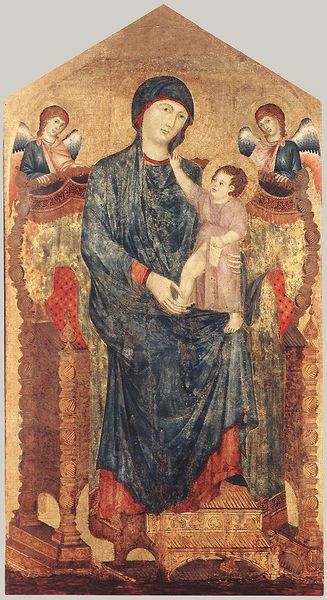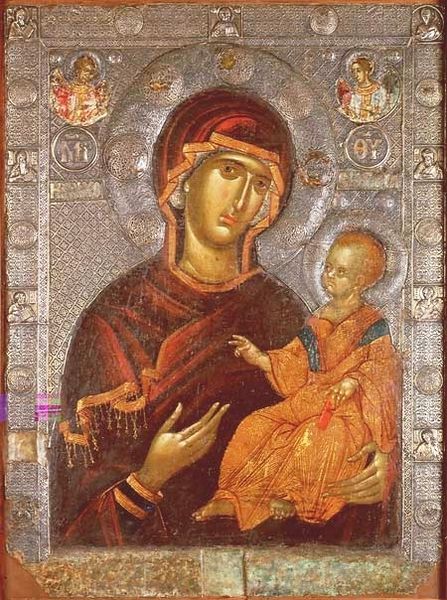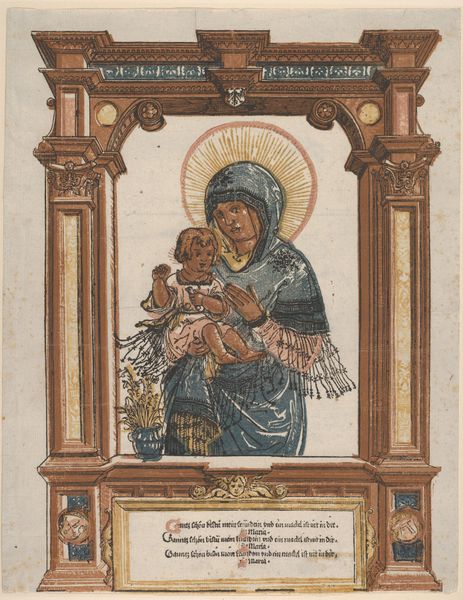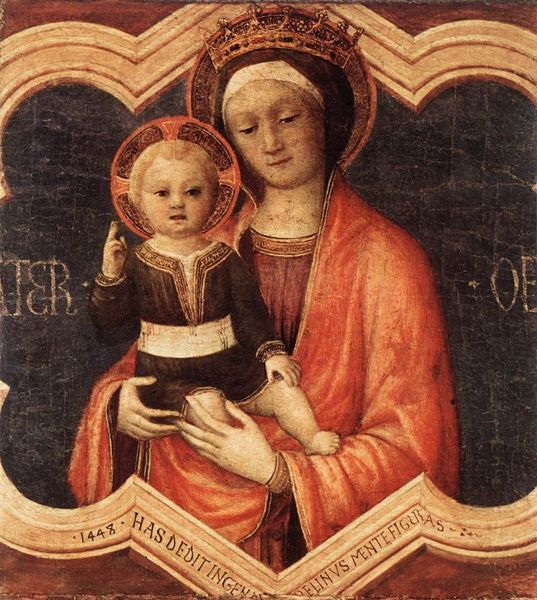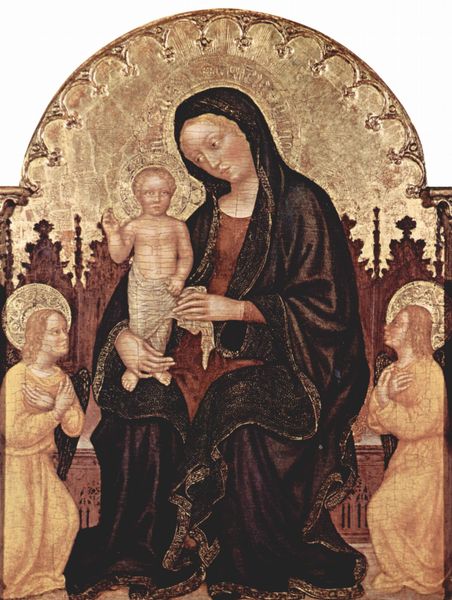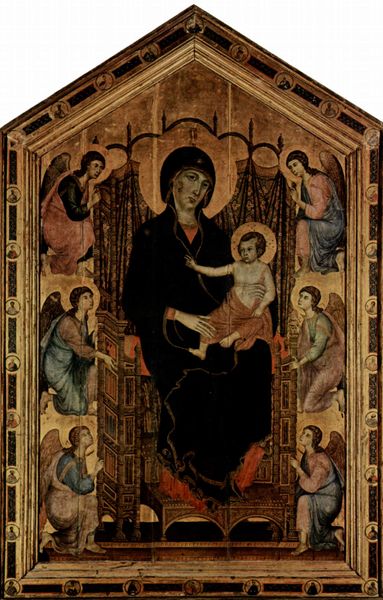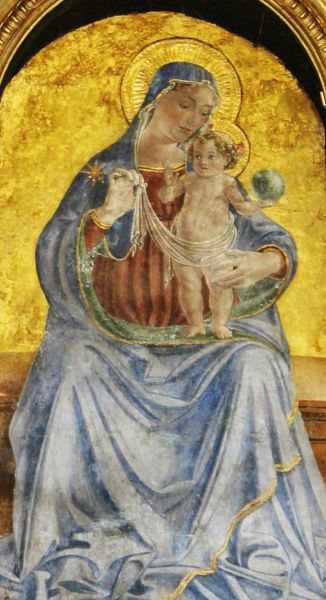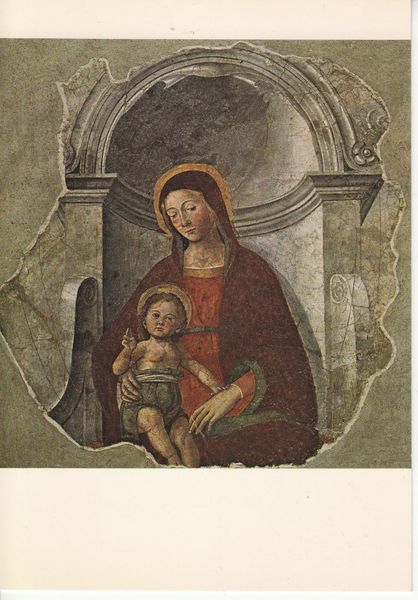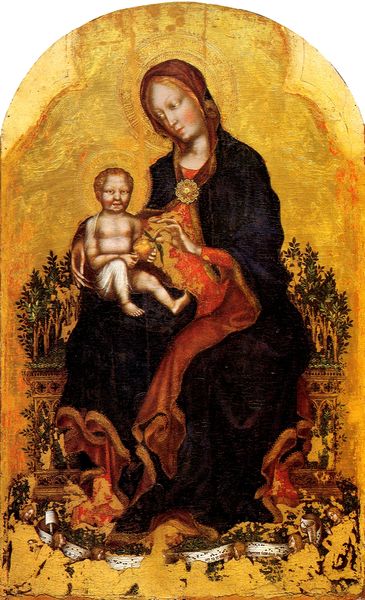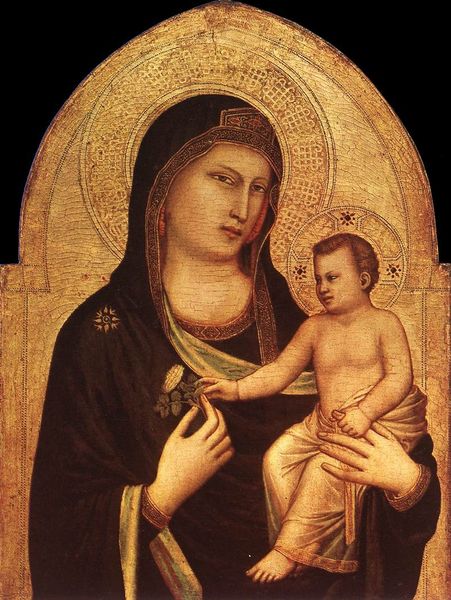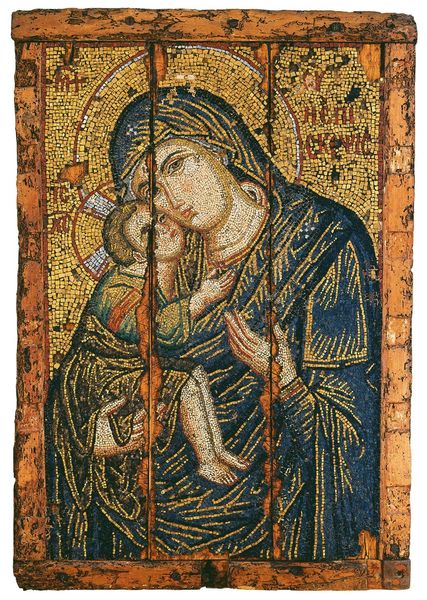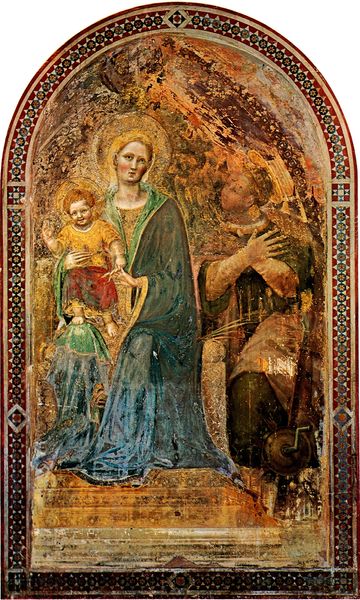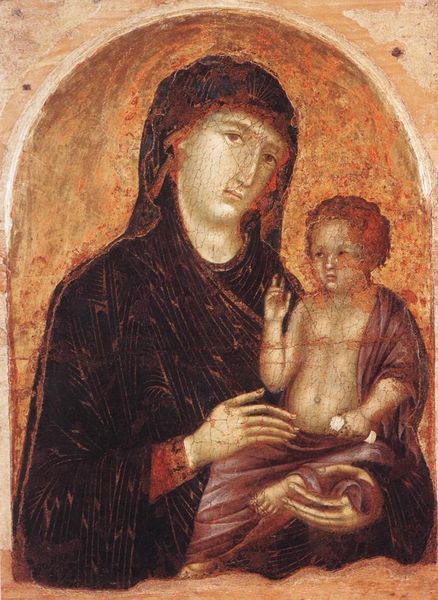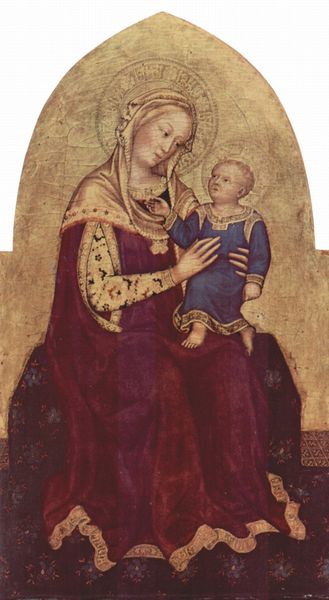
drawing, mixed-media, tempera, print, ink, woodcut
#
portrait
#
drawing
#
mixed-media
#
tempera
# print
#
sculpture
#
mannerism
#
figuration
#
oil painting
#
ink
#
coloured pencil
#
woodcut
#
christianity
#
watercolour illustration
#
history-painting
#
northern-renaissance
#
mixed media
#
christ
Copyright: Public domain
Curator: What a compelling work! This is "The Beautiful Virgin of Regensburg" created around 1520 by Albrecht Altdorfer. It's a woodcut with touches of tempera and other mixed media. Editor: My first impression is one of stillness, almost a reverential hush. The architectural framework gives a monumental feel, while the figures themselves exude a gentleness. Curator: Indeed. Altdorfer was working during a time of immense social and religious upheaval, right at the beginning of the Reformation. It’s worth considering how an image of the Virgin, a symbol of the Catholic Church, functioned within this climate of radical religious transformation. Editor: The symbolic weight here is significant. The halo around Mary and the child Christ immediately conveys divinity and purity, drawing on centuries of artistic tradition and religious iconography. Curator: Absolutely. It's intriguing how Altdorfer synthesizes different pictorial traditions. While we can clearly see a reverence for established symbolism, the Virgin herself also seems almost... folksy. Editor: I see what you mean. There's a tenderness, a certain humanity in her expression that transcends the formal religious symbolism. Look at how she supports the Christ child. This intimate portrayal connects to something universal. The gesture itself speaks of protection and comfort. Curator: Precisely. I would argue this work complicates a solely devotional interpretation. The social context offers space to analyze the figure of Mary as a symbol of resilience or even resistance during this period. The choice to create a print also indicates the democratization of this very important figure in Christian art, it’s access and viewership broadened by way of a printed image. Editor: I’m still captivated by the frame! This element provides more than structural support; it acts as a stage or shrine. The German script in the lower register must offer some further insight. I like how this aspect of language interacts with visual meaning. Curator: The use of framing and language underscores Altdorfer's brilliance. We must remain vigilant when interrogating any art object; the social conditions can reveal complex narratives that shape how and why people find art relatable or relevant even after hundreds of years. Editor: A powerful reminder to see art as more than aesthetics, and consider it instead as a timeless mirror reflecting our history, culture, and inner selves.
Comments
No comments
Be the first to comment and join the conversation on the ultimate creative platform.
